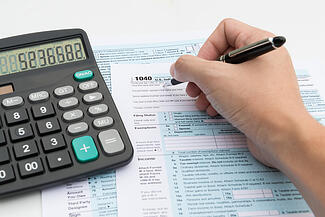 As a Bellingham, MA CPA who specializes in taxes and accounting for real estate law firms, Ann Irons has experience with both sides of real estate sales transactions. A CPA is an invaluable resource for anyone considering the purchase of a new home, offering guidance on managing finances, tax planning, and reporting requirements involved with home ownership.
As a Bellingham, MA CPA who specializes in taxes and accounting for real estate law firms, Ann Irons has experience with both sides of real estate sales transactions. A CPA is an invaluable resource for anyone considering the purchase of a new home, offering guidance on managing finances, tax planning, and reporting requirements involved with home ownership.
What is escrow?
Unless you pay cash for your home, you’ll need to locate a lender to finance your purchase. In addition to paying the principal and interest on your monthly mortgage payment, you’ll also be required to pay portions of homeowner’s insurance premiums and yearly property taxes. This amount will be divided evenly over the course of the year, and it may change from one year to another.
Do I have to make contributions to an escrow account?
Not all lenders require you to create an escrow account, but most do as a form of financial protection. Different lenders will have different terms, and there are federal laws that prevent lenders from requiring unreasonably high minimum escrow contributions. However, your lender can increase minimum contributions to ensure that your account has sufficient funds for insurance and tax payments. So while you aren’t always required to use escrow payments, entrusting tax payments to a neutral third party prevents you from sending payment too late or missing the deadline altogether.
My lender sent me an escrow surplus check. Should I report it?
If the balance in your escrow account exceeds your mortgage insurance and real estate tax expenses, your lender will send you a check for the surplus funds. The money was yours to begin with, therefore you are not actually making money. You are not required to report your surplus check because it isn’t a form of income. Think of it as a rebate, and consider applying it to pay down your principal.
How will my escrow account affect my tax return?
The money in your escrow account has already been earmarked in part for your property taxes, and property taxes are deductible. Only property taxes that have been paid directly from your escrow account can be deducted; your lender pays this amount to the appropriate regulatory agency. Do not deduct money you’ve placed into escrow. Anything left over and repaid as a surplus check should have no effect on property tax deductions.
Questions about property taxes and escrow in Bellingham, MA? To learn more about tax returns, escrow accounts, and accounting services, or to schedule a meeting with Ann Irons, CPA, LLC, contact us at (508) 966-0700. We welcome individuals, businesses, and foreign investors in Bellingham, Woonsocket, Medway, Milford, Worcester, and the surrounding areas.






